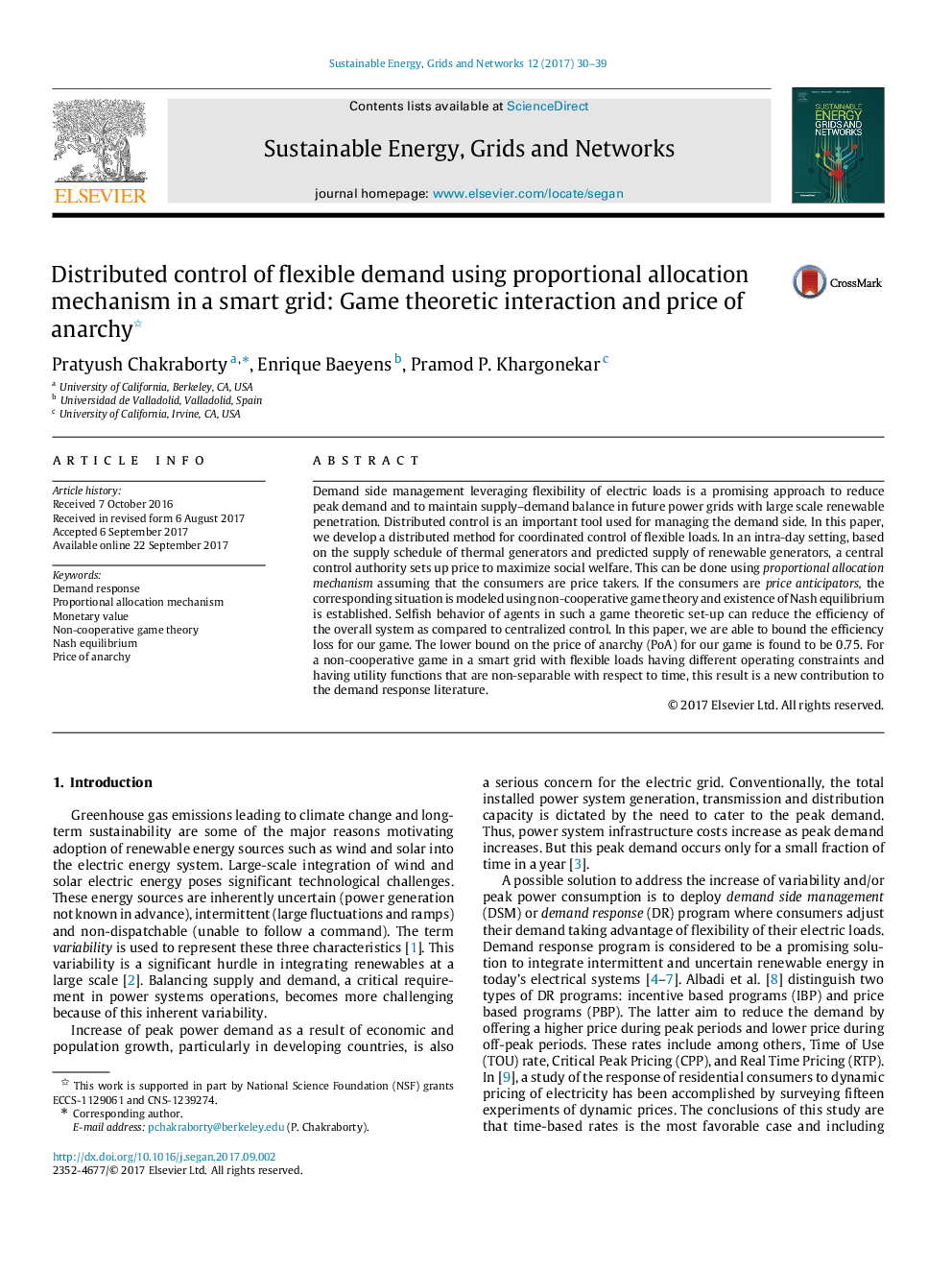| Article ID | Journal | Published Year | Pages | File Type |
|---|---|---|---|---|
| 4968321 | Sustainable Energy, Grids and Networks | 2017 | 10 Pages |
Abstract
Demand side management leveraging flexibility of electric loads is a promising approach to reduce peak demand and to maintain supply-demand balance in future power grids with large scale renewable penetration. Distributed control is an important tool used for managing the demand side. In this paper, we develop a distributed method for coordinated control of flexible loads. In an intra-day setting, based on the supply schedule of thermal generators and predicted supply of renewable generators, a central control authority sets up price to maximize social welfare. This can be done using proportional allocation mechanism assuming that the consumers are price takers. If the consumers are price anticipators, the corresponding situation is modeled using non-cooperative game theory and existence of Nash equilibrium is established. Selfish behavior of agents in such a game theoretic set-up can reduce the efficiency of the overall system as compared to centralized control. In this paper, we are able to bound the efficiency loss for our game. The lower bound on the price of anarchy (PoA) for our game is found to be 0.75. For a non-cooperative game in a smart grid with flexible loads having different operating constraints and having utility functions that are non-separable with respect to time, this result is a new contribution to the demand response literature.
Related Topics
Physical Sciences and Engineering
Computer Science
Computer Science Applications
Authors
Pratyush Chakraborty, Enrique Baeyens, Pramod P. Khargonekar,
